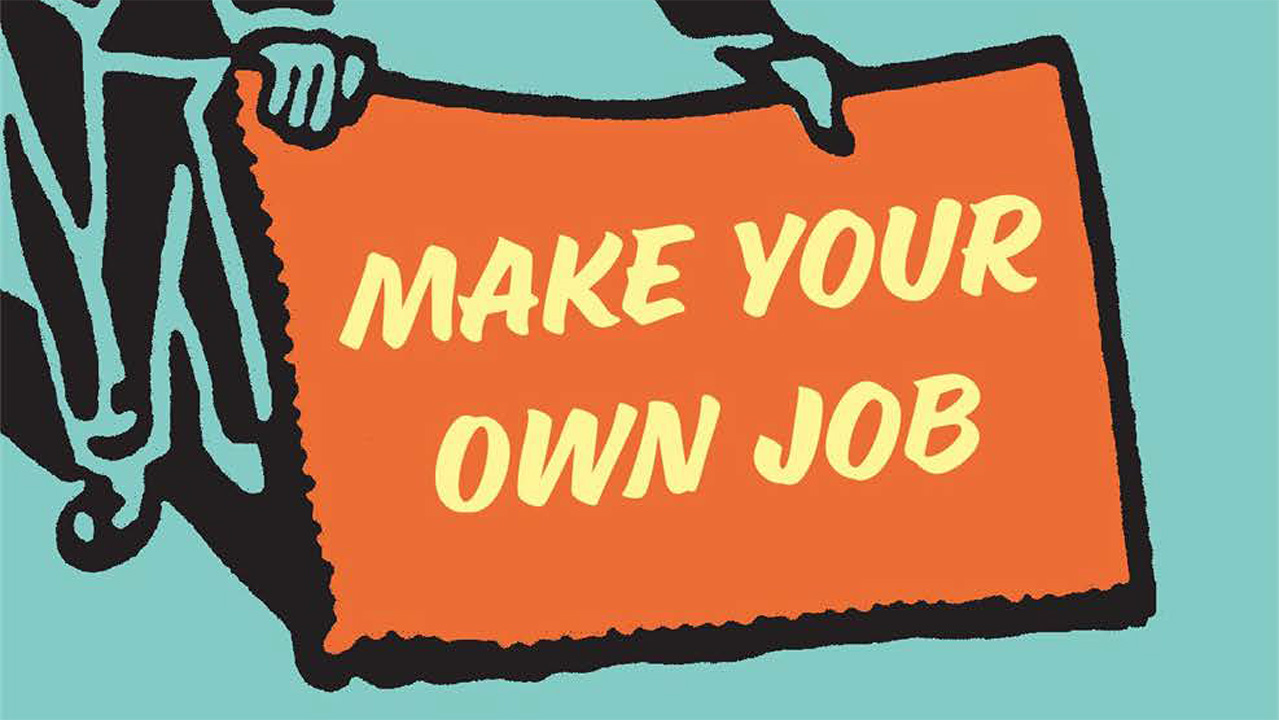Self-help literature is ubiquitous in American culture: A staple of airport bookstores, grocery magazine aisles, as well as its own separate category on the New York Times Nonfiction bestseller list (under Advice, How-To & Miscellaneous). The lifestyle trade, which props up actual scientists, amateur life coaches, and shameless grifters alike, thrives and shifts with each new social fad. Think Robert Greene. Think Malcolm Gladwell, Peggy Orenstein, Brené Brown, Thich Nhat Hanh, Eckhart Tolle. Atomic Habits. How To Win Friends & Influence People. The 7 Habits of Highly Effective People.
Perennial topics include: body positivity, mental health, relationship advice, why gender essentialism is or isn’t true, pseudo-scientific/spiritual explanations for a bad or good personality, and, since the very beginning, guides to navigating the workplace. Books about how to make money are so popular they could constitute a separate genre. It might seem as if this appetite for self-improvement and creative enlightenment is baked into America itself. Moreover, one could be tricked into believing that the self-help industry’s constant focus on managerial expertise, adversarial competition, and a phrenology-like fixation on types of people is a reflection of objective truth.
But Erik Baker’s new book Make Your Own Job: How the Entrepreneurial Work Ethic Exhausted America traces its history from today’s grindset influencers back through a surprising collection of management consultants, Avon ladies, hippies, preachers, and radicals. Baker’s book charts the political and cultural discourses that result in both the ailment of modern life and its purported cure—what Baker calls “the entrepreneurial work ethic.” Make Your Own Job is a valuable, highly readable, and unsettling resource, not only for understanding how the current landscape of labor has shifted and been manipulated, but for parsing what the next steps to change it might be. As Baker writes, “The promises of entrepreneurialism may be empty, but they respond to profound and ineradicable needs among working people that remain persistently unfulfilled under capitalist social relations.”
I chatted with Baker about this theme, his work, and what to make of this maddeningly durable thing we call entrepreneurialism.
This book would have been relevant no matter who won the election, but I can’t help notice so many parallels between the subjects you talk about in Make Your Own Job and the world right now.
I do think that it's more on the surface now, especially with the role of Elon Musk in the White House. He so perfectly sums all this stuff up. It does kind of feel like the worst possible vindication.
I was surprised that Musk isn't in the book as much as maybe he could have been. He seems like a lodestar for all this hollow innovation-first, anti-labor nonsense.
I was very deliberately trying to write a book that was kind of election-proof. I didn't want to press too hard on the idea that Trump-Musk is where all this ends up. I finished the book just a couple of weeks after Biden’s dropout. I do think, in making that consideration, I was concerned not only for the readerly experience of the book, but there's also a substantive point, which is: The fact that Trump won doesn't mean the liberal, Democratic aspect of this entrepreneurial ideology is gone or not significant. The Trump-Musk monstrosity is one place where this ends up. But it is also true that entrepreneurship continues to have this capacious contradictory power that it's always had.
I’m curious why you began the introduction to Make Your Own Job with former Zappos CEO Tony Hsieh, who died in a house fire in 2020. As someone from Vegas, I was happy to see him mentioned in this context. It seems people have been content to let his legacy fade even though it’s still quite influential.
I was worried in some ways that that introduction would be too on-the-nose. The inspiration came when I was writing the final chapter of the book, which deals with the emergence and popularization of positive psychology. Hsieh’s name kept cropping up as a booster of this work. For example, he blurbed one of these books by Martin Seligman, the driving force of this positive psychology field. There was something about this guy who, while he was alive, tried to make himself a kind of mascot for a science that promised that embodying the entrepreneurial work ethic would make you happy, this guy who thought this was proved by science, that entrepreneurship is the path to happiness. And that he ended up dying in this horrible way, clearly dealing with a great deal of personal unhappiness.
I tried not to beat the reader over the head with it, but it seemed to me like it was hard to ask for a more perfect encapsulation of the bankruptcy of the promises that this kind of advice literature is giving to people.
There’s a really fascinating throughline in the book about the relationship between universities and business leaders. Specifically, in terms of how they collaborated to produce a lot of the literature and ideology that drove the conception of entrepreneurialism. Had you known about that history before working on the book?
In some ways, that's actually where I began. From the time I started graduate school and really began to read widely across the humanities and the social sciences, I became struck by how pervasive the language of entrepreneurship was. Across fields, whenever there would be some sort of political development, it would be explained by reference to the activity of “political entrepreneurs” who had made that happen, or intellectual entrepreneurs who had bootstrapped some kind of ideological development.
It seemed to me, more generally, that the metaphors of entrepreneurship and the market had come to be really pervasive in a lot of theoretical work. The way that academics tend to narrate it is, “We got rid of Marxism at some point. Now we're onto all these other theoretical ideas.” And it seemed to me the language and the imagery of entrepreneurship loom large in all of that. So I was really curious in trying to investigate the genealogy there and, to my surprise, I found that a lot of these early intellectual academic influences on entrepreneurial thinking actually had connections to a broader popular readership as well.
Does that same academic/theoretical generation with regards to entrepreneurialism still play out at the same scale today?
I mean, it's absolutely ubiquitous. I try to give some examples near the end of the book about the way that this stuff has, in my view, completely taken over academia, not just in the business schools. So much of psychology and organizational science, sociology, economics, obviously. I am pretty confident in the assertion that there are, by far, more academics working today on the study of entrepreneurship than there ever have been.
At the same time, I do think that the horse is out of the barn a little bit. It's not like there's anyone who's waiting with bated breath for the latest study.
A funny experience I've been having since the book came out is I've gotten inquiries—I'm not sure how automated they are—from PR firms and publicists for self-styled entrepreneurs who are wondering if I'd be interested in telling the story of so-and-so and their amazing grit and how that hustle brought them to where they are now.
This stuff is so pervasive and has such momentum on its own that I think it's difficult for academic theorists of “how to be a good entrepreneur” to really intervene in that discourse in the same way that they were able to earlier in the 20th century.
Your own stance on these developments is clear throughout Make Your Own Job, but how did you balance critique with context?
Part of the purpose of the book is that I do want to criticize these ideas. I think that the effect of these ideas and the culture that they've helped create has been, for lack of a better word, bad. But a major objective of the book is also to help people to understand the way that these ideas are really interwoven, in a very profound way, with the material realities of lives that we live under capitalism.
There's no shortage of books that'll tell you why this or that neoliberal idea is bad or pernicious. At this point, especially since the kind of revitalization of the American left in the 2010s, these books are a dime a dozen. And many of them are insightful and help people to think about the world for themselves in a new way. But, needless to say, they also have been pretty ineffective at actually halting the onrush of these ideas. I didn't want to produce one more polemic about why entrepreneurship is bad. In some ways, almost the opposite.
I really wanted to explain its staying power despite the fact that there is a lot of vacuousness to these ideas. There is a theme of charlatanism that runs throughout. Sometimes, in a literal case in some of the material on the early 20th-century American conman types. And yet, there's a kind of stubbornness, almost a Trump-like ability, for entrepreneurship to wiggle out of whatever jam it finds itself in, and that's really what I wanted to help explain.
I hope that the message that people take away from this book is not, “I need to concentrate my own mental resources as hard as I can on opting out of these ideas,” but rather that, in order to free ourselves from them, and they do have pernicious consequences, the project of materially transforming the nature of the lives that we live will be just as indispensable.
There’s been a greater, more visible academic labor movement happening in the last few years. More recently, some of this has been highlighted by the way universities have retaliated against students and faculty organizing for Gaza. You’ve been vocal about your involvement with the UAW and supporting academic organizing. I’m curious how your relationship with that evolved.
The academic labor movement has grown tremendously and I feel privileged to have been able to be a part of that, both as a graduate student and now as a non-tenure track faculty member. In both cases, I was involved with the UAW where I spent some time as a staff organizer. My experience in the academic labor movement is so thoroughly entwined with my experience writing the book and my motivations for doing so.
Part of my initial motivation was the experience of trying to organize people in higher ed and this sense a lot of people had that they were not the kind of worker that unions were for. This question of the way that people relate to themselves as working people, the kinds of identities that people take on as workers, I got really interested in that.
This led me almost naturally to the question of entrepreneurship. It seemed to me that so many academics felt that they couldn't imagine themselves as union workers because they were so committed to everything that I now define as characteristic of the entrepreneurial work ethic: They saw their work as an extension of themselves, they felt the need to have a proprietary relationship with their work. It's very related to the experience of precarity, of scarce work, which is a theme that runs throughout the book. So to me, as an academic labor organizer, I needed to understand better what this kind of identity was, the sense of self, and where it came from.
The flip side of that is the acceleration of organizing in higher ed, the success that unions have had on campus, real progress in terms of giving people an alternative to that mindset, giving people a different way of understanding themselves and their relationship to work. I think if there's any cause for hope with respect to all of this, it is that we have seen the construction of spaces and organizations that have helped give people a different way of imagining what their lives might be, imagining how they ought to relate to their work.
How has the reception been to Make Your Own Job? Any angry entrepreneurs?
The most gratifying thing that I've heard is that the book has given people language or a conceptual framework to describe aspects of their experience that had been troubling them, that they hadn't really known quite how to categorize or to talk about. The entire time that I've been working on this project, people have essentially said, “Isn't this stuff just an intrinsic part of American culture?” And while its roots are deep, that's actually not quite true. It does have a history. There are reasons for its rise and persistence that go beyond, “Well, this is what Americans have always thought and felt.”
It’s an especially distressing reality for freelancers to face, myself included, the ubiquity of “independent contractor” positions and the shift of media away from staff jobs. There’s a sense CEOs seem to have that most people are lazy and need to be incentivized to work harder, under worse conditions.
My own experience as a freelance writer definitely informed my perspective in this book. It made me chuckle whenever I would read someone in the literature in the late 20th century describing the new freelance economy that the internet would create as a vehicle for liberation. But those were the hopes that were invested in this.
When Americans think about the work ethic, we often think about the Puritans, some guy from The Crucible forcing you to do something manifestly unpleasant. The obvious question is “Who does that convince?” Of course, there is that current in our culture and it does convince some people, but I think the magic trick of entrepreneurialism, almost like an act of alchemy, is how it can turn discontent with work, feelings of anxiety and dissatisfaction, into fuel for an even greater, more demanding commitment to work.
And while there are certainly many valid leftist criticisms of corporate bureaucracy, I think it's important again not to assume that if we say, "Well, you know, isn’t working in an office for a boss so alienating?" that we know that's actually not enough. Because that’s exactly what all the gig economy boosters say too. You have to go beyond that in order to give people the resources not to succumb to self-exploitation.
Another purpose I had in writing this book and, in particular telling such a long story, is to challenge this image that neoliberalism was preceded by a golden age of capitalism when there was stability rather than precarity. “Sure, the work may not have been the most enlivening thing in the world, but you went, clocked in, clocked out, got good pay, you had your union and then you could have a full life in your leisure hours.” This was never the characteristic experience of work in the United States. There may have been more people who had access to that for a period of time in the mid-20th century than today. But they were always a minority.
And the fact that that experience was so rare created ideological problems for capitalist society that gave the entrepreneurial work ethic purchase. One register of this, in the second half of the 20th century, was that conservatives started to use language glorifying business leaders as job creators. Again, one of the amazing things about entrepreneurial ideologies is that they can demand that people make work for themselves, along with this sense of gratitude for the miracle of job creation. The act of forfeiting agency or relying on heroic entrepreneurs to create work for the rest of us to enjoy, that's a temptation that doesn't allow you to escape the ideological trap. More is needed.






